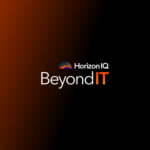
 The Digital Hollywood event in Los Angeles earlier this month brought together content providers and technology companies from around the country to discuss the future of digital content distribution and licensing. As expected, the business of content creation and publication has progressed at breakneck speed in recent years, and as a result, the Digital Hollywood conference has evolved from a “dreams and ideas” workshop into a forum for strategic business and licensing discussions.
The Digital Hollywood event in Los Angeles earlier this month brought together content providers and technology companies from around the country to discuss the future of digital content distribution and licensing. As expected, the business of content creation and publication has progressed at breakneck speed in recent years, and as a result, the Digital Hollywood conference has evolved from a “dreams and ideas” workshop into a forum for strategic business and licensing discussions.
The evolution of content distribution
In addition to focusing on the creative side of their brains, content creators must now increase their knowledge of the business side of content delivery. Dreams and ideas that once only existed in theory are now a reality, and learning about digital content distribution strategies – what’s working and what’s not – is critical for the success of any content publisher. Since seemingly everyone has the power to create content today, the barrier to entry into the media and entertainment industry is significantly lower than before. But before setting your sights on creating the next online hit drama series, you need to decide the right content delivery method for your masterpiece.
Content licensing and rights management
With the high consumer demand for digital content and the subsequent high revenue potential, ISPs/IPs, content aggregators and content owners are all trying to protect their interests, and this has pushed distribution and license management to the forefront. While your newest video creation may be fantastic, no one will see it without the right distribution channels in place, which may also include digital rights management (DRM) to control any royalties associated with your creation. Successful content distribution also requires you to understand your rights for other types of distribution. More content owners are choosing to do their own delivery via pubic cloud and Content Delivery Network (CDN) infrastructure rather than sign their rights away.
The Digital Hollywood event has become a conduit for the business of content delivery over the internet as opposed to a forum for discussing ideas. With the rise of tablets and smartphones fueling the rapid increase in digital media consumption, content creators have more opportunity than ever. But knowing the business of content delivery has become just as important as the content itself.


